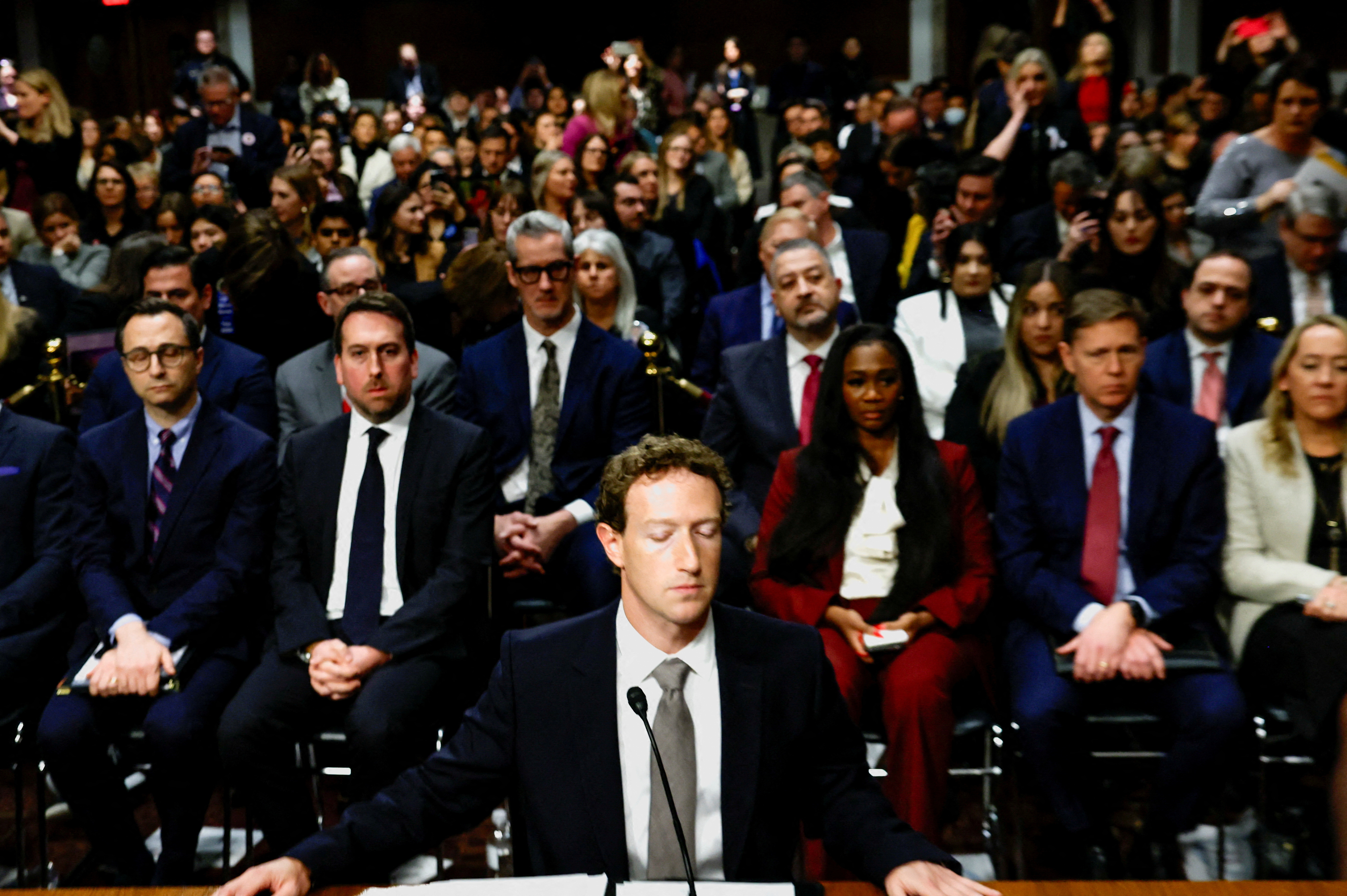When Mark Zuckerberg turned at a Senate hearing to address the parents of children exploited, bullied, or driven to self-harm via social media, it felt like a time-worn convention had sprung back to life.
“I'm sorry for everything you've been through,” the Meta CEO said Wednesday. “No one should go through what you and your families have suffered.” Then he returned to corporate mode, noting Meta's continued investments in “industry-wide” efforts to protect children.
Zuckerberg has accumulated a long history of public apologies, often issued in the wake of a crisis or when Facebook users rose up against unannounced — and frequently unappreciated — changes in its service. It's a history that stands in sharp contrast to most of his peers in technology, who generally prefer not to speak publicly outside of carefully stage-managed product presentations. But it's also true that Facebook has simply had a lot to apologize for.
Whether or not the public always buys his apologies, there's little doubt that Zuckerberg finds it important to make them himself. Here's a quick, and by no means comprehensive, compendium of some notable Zuckerberg apologies and the circumstances that brought them on.
BLINDED BY BEACON
Facebook's first big privacy blow-up entailed a service called Beacon, which the platform launched in 2007. Intended to usher in a new age of “social” advertising, Beacon tracked user purchases and activities on other sites and then published them on friends' newsfeeds without requesting permission. After a huge backlash — well, it was huge at the time — Zuckerberg wrote in a blog post partially transcribed by TechCrunch that “we’ve made a lot of mistakes building this feature, but we’ve made even more with how we’ve handled them.” Beacon didn't last much longer.
MOCKING FACEBOOK'S EARLY USERS
In one of the earliest stories of Facebook's founding, a 19-year-old Mark Zuckerberg mocked the roughly 4,000 students who'd joined his nascent service, bragging to friends in text messages about the vast amount of personal information he'd collected thanks to the misplaced trust of his users. Zuckerberg called them “dumb” and punctuated the word with profanity. When Silicon Alley Insider, a predecessor to Business Insider, published those messages in 2010, Zuckerberg apologized during an interview for a New Yorker article, saying he “absolutely” regretted those remarks.
BURYING A FEDERAL SETTLEMENT
On Nov. 9, 2011, the Federal Trade Commission subjected Facebook to stricter privacy oversight after finding that the company arbitrarily made private information public without notice, failed to limit data sharing with apps when users activated restrictive settings, shared personal information with advertisers after saying it wouldn't, and more.
The same day, Zuckerberg posted a 1,418-word essay grandly titled “ Our Commitment to the Facebook Community ” that didn't mention the FTC action until a third of the way in and described blunders like Beacon as “a bunch of mistakes."
VR TOUR OF A DISASTER ZONE
Zuckerberg's fascination with virtual reality long predated his decision to rename the company Facebook as Meta Platforms. On Oct. 9, 2017, he and a Facebook employee starred in a live VR tour of Puerto Rico in the immediate aftermath of Hurricane Maria. The pair beamed themselves into prerecorded 3-D footage of the damage and recovery efforts; Zuckerberg described the you-are-there feeling as “one of the really magical things about virtual reality," especially given, as he said, that “it's a really tough place to get to now.”
He later expounded on Facebook's own recovery efforts, but the dissonant video drew so many complaints that Zuckerberg posted a brief apology in the video chat, explaining that his attempt to showcase Facebook's efforts at disaster recovery wasn't very clear and apologizing to anyone who was offended.
CAMBRIDGE ANALYTICA
In 2018, news broke that Facebook had allowed apps to scrape large amounts of data from user accounts and those of their friends without oversight. While hundreds of apps were involved, attention soon focused on one that captured data from 87 million Facebook users and forwarded it to a U.K. political data-mining firm called Cambridge Analytica that had ties to then-President Trump's political strategist Steve Bannon. That data was reportedly used to target voters during the 2016 U.S. presidential campaign that resulted in Trump's election.
Zuckerberg first apologized for the scandal on CNN, saying that Facebook has a “responsibility” to protect its users’ data and that if it fails, “we don’t deserve to have the opportunity to serve people.” He gave a version of that apology later that year in testimony before Congress, saying that “we didn't take a broad enough view of our responsibility” while also failing to crack down on fake news and hate speech, poor data privacy controls, and not adequately addressing foreign interference in the 2016 elections on Facebook.
U.S. senators on Wednesday grilled leaders of the biggest social media companies and said Congress must quickly pass legislation, as one lawmaker accused the companies of having "blood on their hands" for failing to protect children from escalating threats of sexual predation on their platforms.
Reporting by David Shepardson and Makini Brice; additional reporting by Sheila Dang and Katie Paul; Editing by Jonathan Oatis and Rosalba O'Brien



